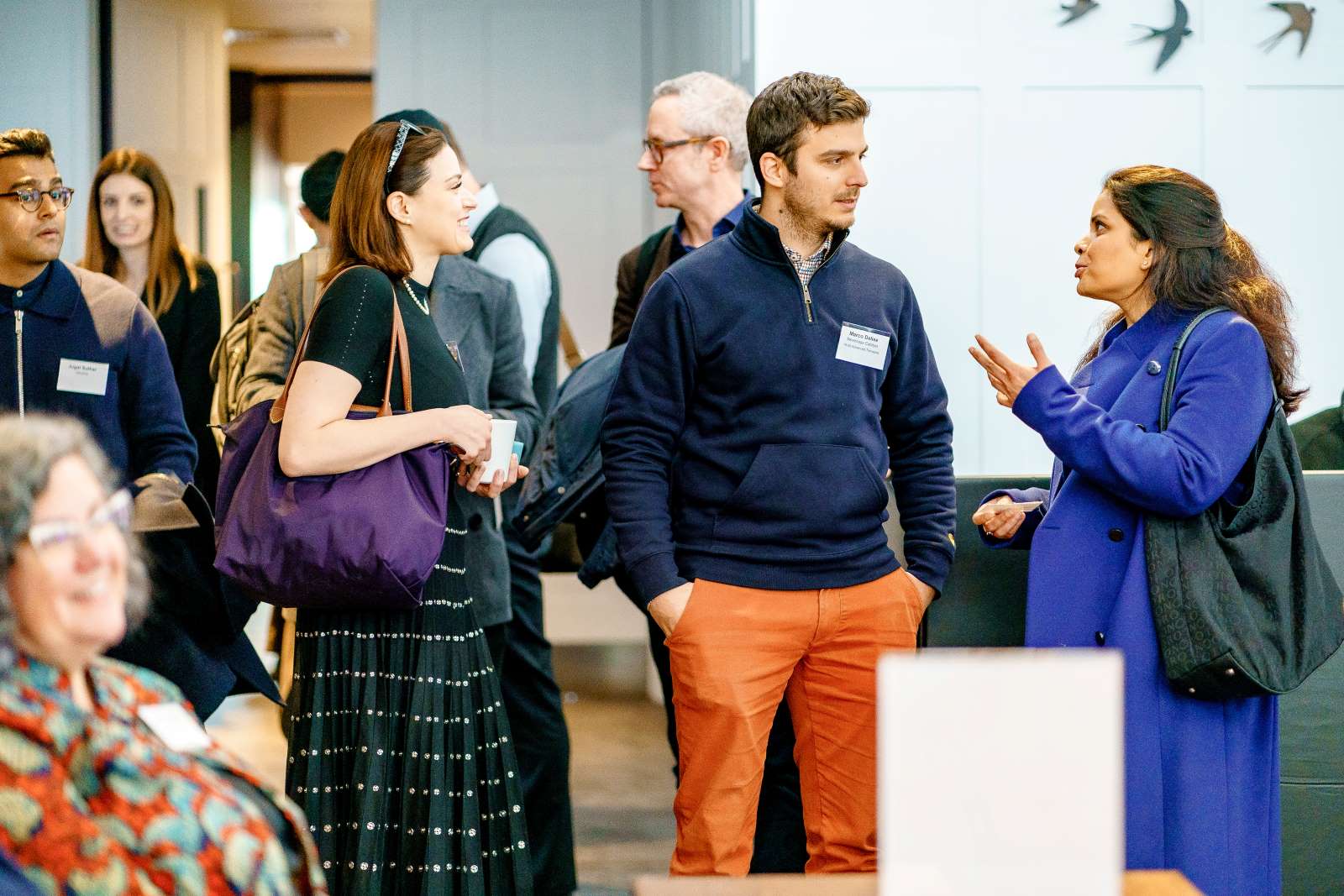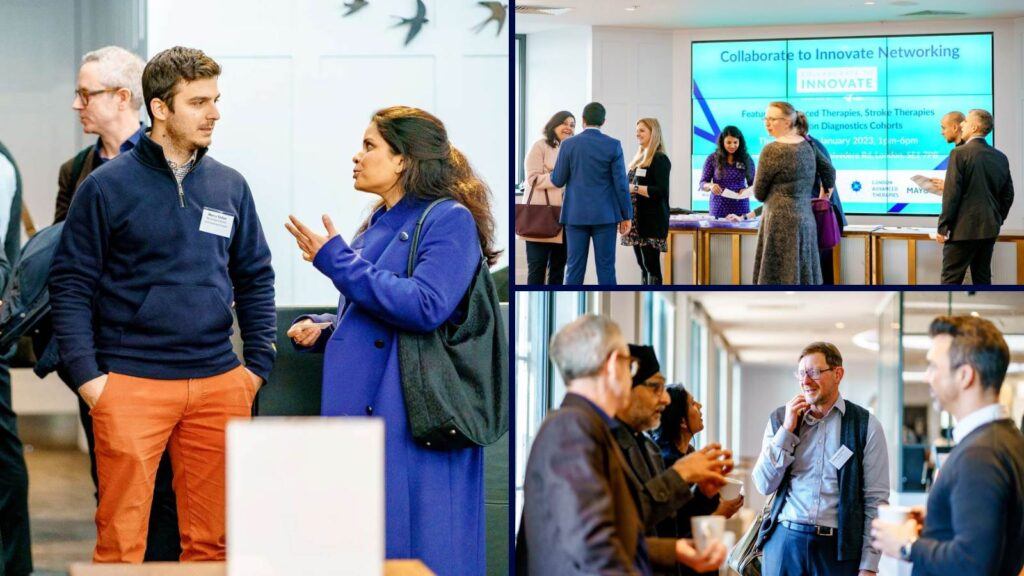
New report demonstrating the impact of advanced therapy collaborations
Collaborate to Innovate is one of MedCity’s core strategic programmes. It identifies small- and medium-sized enterprises (SMEs) with innovation or applied research needs and matches them to university research groups with complementary skills or expertise.
The programme supports and catalyses partnerships between individuals, companies and organisations who have common goals. This promotes the transfer of knowledge and expertise across the life sciences ecosystem, with the end goal of commercialising the innovations resulting from these partnerships.
Our new impact report evaluates the partnerships funded through rounds two and three of the Collaborate to Innovate programme.
The focus for the partners in these cohorts is advanced therapies – gene and cell-based treatments. This is a fast-growing area of research and innovation in life sciences, with the potential to provide a step-change in the treatment of many diseases.
Each of the participating SMEs received support to help them tap into academic expertise and key capabilities from the university delivery partners up to a value of £150,000. This was paid for by the programme and funded by Research England and the European Regional Development Fund (ERDF).
These rounds of the programme ran from 2019-2022 and, in spite of the difficulties brought about by the COVID-19 pandemic, the partnerships delivered excellent, impactful projects.
Commercial impact
Collaborate to Innovate: Advanced Therapies Rounds 2 and 3 supported 16 research partnerships (a full list of these partnerships is available in the report).
The commercial impact of the work was significant. Building on the achievements of the Round 1 cohort, the combined net present value (NPV) of gross value added (GVA) is estimated at £4.5 million, with an additional £10.1 million GVA generated through investment in research and development (R&D).
Taken together, the combined GVA of £14.6m means the programme had a cost benefit ratio of 1:5.92 – each £1.00 of public investment generated £5.92.
One of the key successes of the programme was the extent to which further R&D funding was secured or anticipated by SMEs taking part. Over £27 million of further public and private funding was secured by participating projects.
Dr Marina Tarunina, Research Director at Plasticell, said of their partnership with UCL:
“This combined effort exceeded our expectations in accelerating the initial testing of the product and preparing the right conditions for commercialisation, as evidenced by our success in a new round of equity funding.”
All the ERDF-funded projects confirmed their product had moved closer to market as a consequence of the support.
Dr Michael Jones, CEO of Cell Guidance Systems, which also partnered with UCL, told us:
“The funding and support we received through MedCity enabled a very fruitful collaboration which has provided much needed proof of concept for a novel therapeutic molecular vehicle to transport and deliver protein drugs to treat injuries on the surface of the eye.”
Collaborative and innovation impact
In addition to commercial impact, the Collaborate to Innovate programme has also been very successful in terms of improving links between companies and Higher Education Institutes (HEIs).
Dr Marc Martinez-Llordella, Founder and Vice President Biology of Quell Therapeutics, told us:
“The Collaborate to Innovate programme has been productive and highly positive for Quell Therapeutics. We had the opportunity to work together with extremely experienced scientists in translational research and innovation with clear impact on the clinical care…Overall, our collaboration with King’s College London had significant impact moving our cell therapy closer to the clinic.”
The projects reported that their links with HEIs had improved considerably as a result of the programme, rising on a scale of one to ten from 4.3 to 7.8.
Three-quarters of the project teams plan future collaboration and academic publication.
Dr Anna Perdrix Rosell, Founder and co-CEO of Sixfold Bioscience, says,
“The ongoing collaboration between Sixfold and Prof. Mimi Hii’s group [at Imperial College London] has been very productive, and we’re delighted to be continuing this relationship.”
Creating further connections
We launched our new report at last week’s Collaborate to Innovate event which was a chance to celebrate achievements and provide further partnering opportunities.
Rik Patel, Programmes & Partnerships Lead at MedCity, says,
“The event, which was 2 years in the making, brought companies, partners and funders from four Collaborate to Innovate (C2N) cohorts, all impacted by the pandemic and lockdown restrictions, together to celebrate their projects and successes, in a format that generated a great deal of introductions and really embodied the spirit of C2N, with a fantastic backdrop of the South Bank and Westminster to help set the gravitas of the moment.”
As well as informal networking spaces, the event included 63 separate partnering sessions. These were structured ‘speed partnering meetings’ where companies from the different cohorts could meet with academic collaborators and with representatives from non-profit organisations, investors and professional service providers in MedCity’s extended network.
Francesca Gliubich, Chief of Staff (Health & Life Sciences) at King’s College London, and Director UK Advanced Therapies summed up the positive energy in the room and the lasting legacy of the Collaborate to Innovate programme, saying:
“UK Advanced Therapies has enabled two successful Collaborate to Innovate (C2N) Advanced Therapies cohorts – in 2019 focussed on the London academic network and in 2021 drawing on the UK-wide academic network. These pump-prime programmes facilitated collaborative projects in gaining the necessary preliminary data to pursue further funding. The resulting collaborations have all matured into strategic partnerships between universities and SMEs, which could not have happened without the C2N funding scheme.”
Find out more
To find out more about the impact of the Collaborate to Innovate programme:
Download our new report
Photo credits: James White

